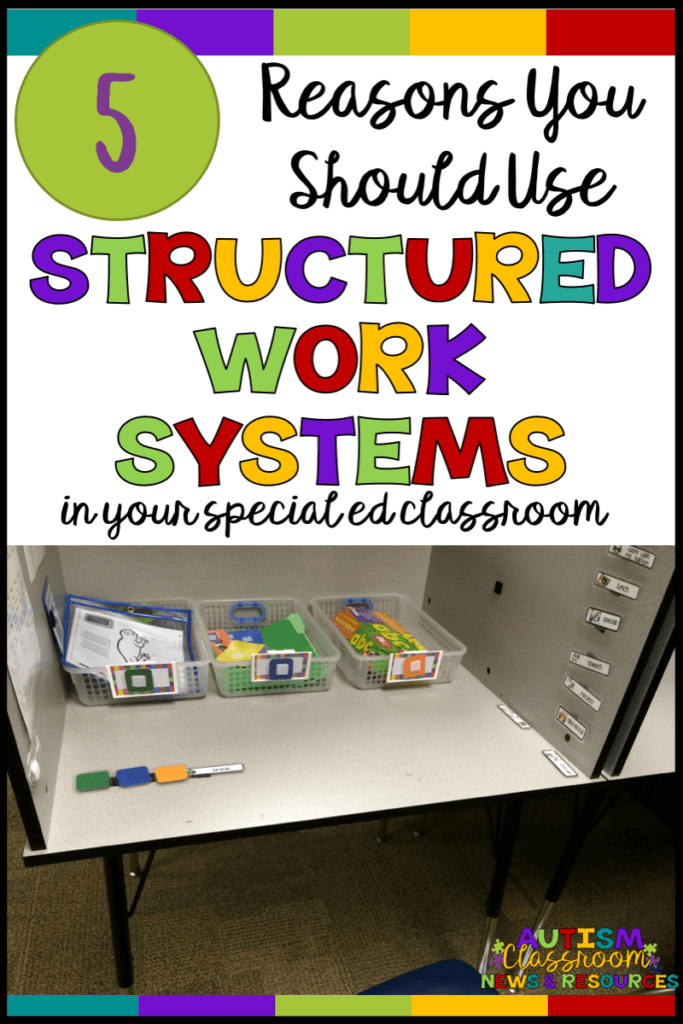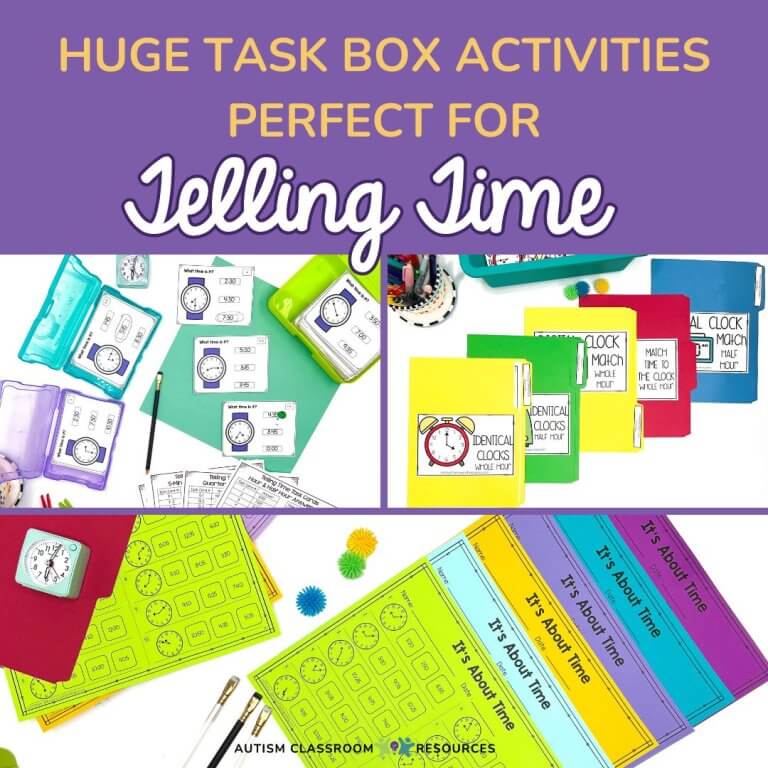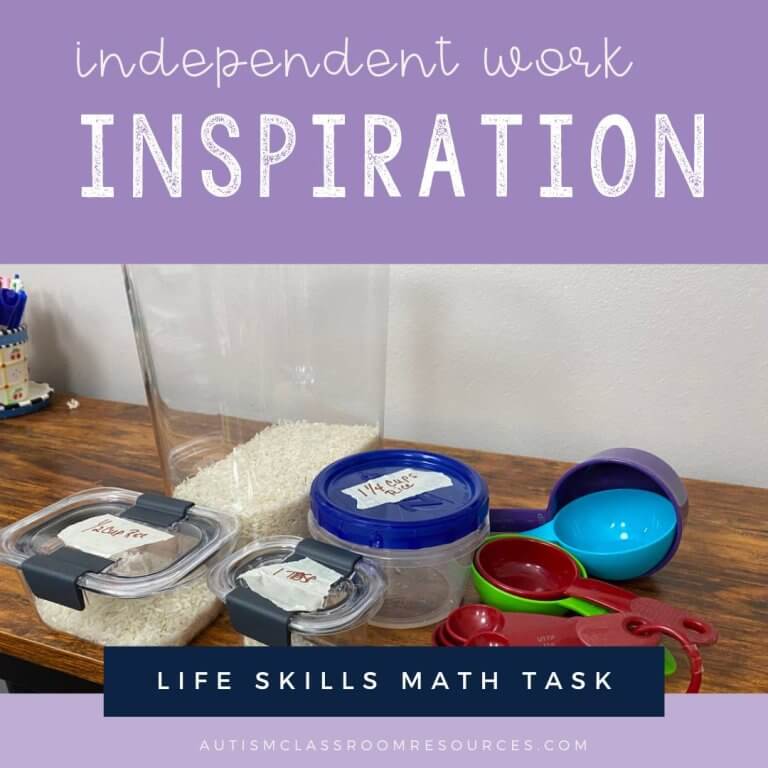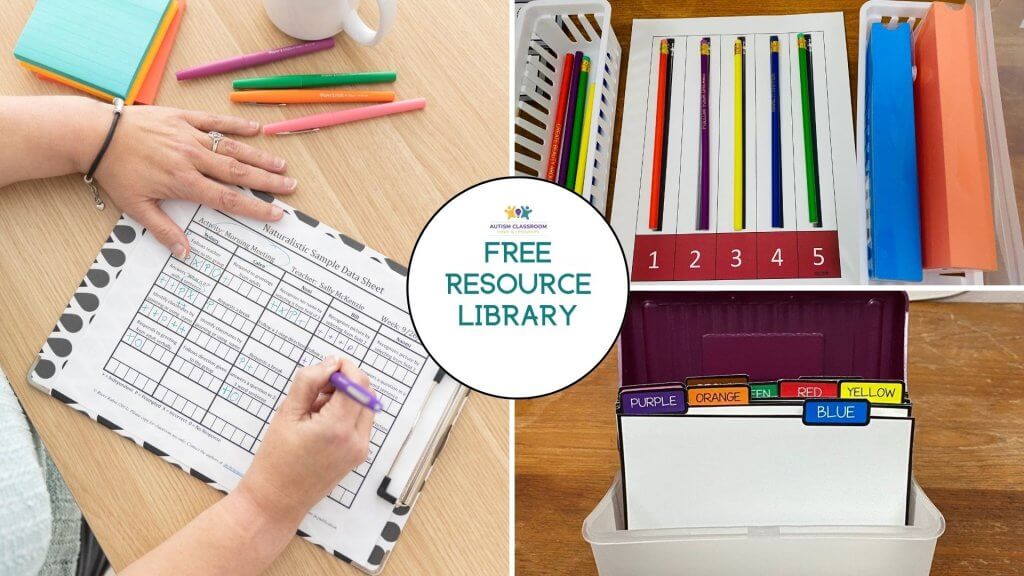Sharing is caring!

I once worked with a student who asked whether he got the right answer after ever single math problem he did. He would finish the problem, and look to a staff member for confirmation that he had done it right.
I’ve also worked with a student on a job site who needed someone behind her for every task telling her the next step. Fading that support on the job site made the difference of her keeping or losing that job.
Do you have students in your classroom like this? I bet you do or have in the past. These are the characteristics of students with autism and other disabilities that necessitate the use of independent work systems.
Over the years I’ve heard lots of objections to the use of structured work systems. People call them busy work or just something that takes up time. However, there is a growing research literature behind using them in classrooms for students in special education. In addition, they serve specific purposes, if done correctly, that are useful for our students.
Why is Independent Work Important?
1. EMERGING EVIDENCE-BASED PRACTICE
Both the National Professional Development Center and the National Autism Center indicate that structured work systems are an emerging evidence-based practice. But evidence-based practices only work if we implement them with fidelity. So much of this series is going to focus on how we can do that. We’ll also focus on why certain things are set up the way they are.
2. Independence is a life skill
We can teach academics and we can teach life skills. But if the students still need support or supervision because we haven’t taught them to work independently, we have failed. Independence is a door opener…prompt dependency is a door closer. More opportunities are open for those who can work independently than for those who can’t.
3. Independence Needs to generalize across environments
We need to build independence that generalizes to larger, more complex environments. Work systems, if taught correctly, can be used a wide variety of environments and situations. They can transfer to new settings and structure the tasks. So in short, they can help students be successful in new environments.
4. Independence Needs to generalize to new materials
Our students also need to generalize their skills to different materials and material presentation. So if I teach a student how to identify pictures using flash cards, I also need him to be able to identify them in other instructional materials like books and file folders or worksheets. Independent work creates opportunities for practicing skills with different materials.
5. Helps maintain skills
Most of our students don’t have “set it and forget it” learning. They don’t learn something and retain it or use it in other settings successfully. So, they need to practice the skills. Practicing with different materials and in different situations is critical for maintenance and for generalization. If our skills don’t maintain or generalize, they won’t be useful. Structured work systems help to program that maintenance into the daily routine.
What’s Next?
So this post kicks off a series on structured or independent work systems. We’ll focus on how to do them right to have the best outcome for your students.





![Independent Work-3 Ways It can Become Your Best Classroom Management Tool [A sorting task in a shoebox to sort nouns from verbs on popsicle sticks into plastic cups]](https://autismclassroomresources.com/wp-content/uploads/2023/06/BLOG-22208-3-Ways-Task-Boxes-and-IW-Help-Classroom-Management-2-768x644.jpg)
